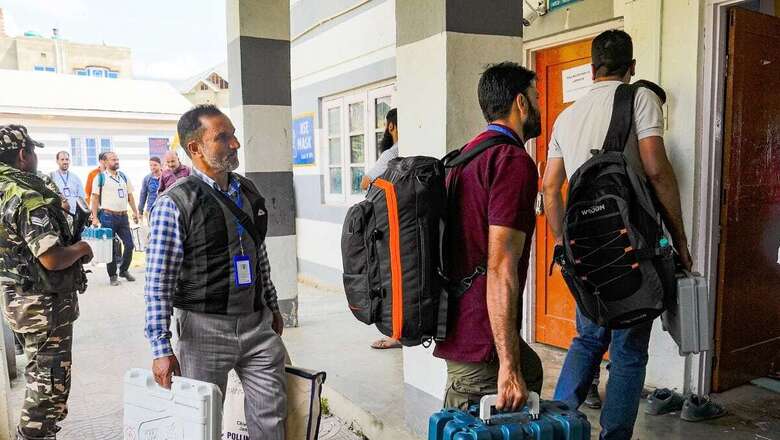
views
The Union Cabinet recently accepted the recommendations of the high-level committee under the chairmanship of former President Ram Nath Kovind to conduct simultaneous elections to the Lok Sabha and state assemblies as the first step, followed by synchronised local body polls within 100 days. The path-breaking decision under Prime Minister Narendra Modi’s leadership will further strengthen our federal structure and consolidate nation-building. It will also reclaim the sanctity and spirit of our Constitution as envisaged by Dr Baba Saheb Ambedkar and other distinguished creators, which was betrayed by the Congress party.
The historic Constituent Assembly, which spanned nearly three years, was tasked with the paramount responsibility of framing our sacred Constitution. The Constituent Assembly debates witnessed the finest minds of the time discuss and deliberate on various topics like the Preamble, Untouchability, Uniform Civil Code, Right to Equality, Federalism etc. But very conspicuously, there was no detailed debate nor discussion on simultaneous elections. Our Constitution creators probably felt that simultaneous elections were the natural way forward. They could not have even remotely expected how democratically elected state governments would later be ruthlessly toppled by Congress governments at the Centre, throwing all constitutional norms to the wind with scant regard for cooperative federalism.
By and large, the first four general elections to Lok Sabha from 1952-1967 involved simultaneous elections along with various state assemblies. In 1959, Nehru’s government imposed President’s Rule for the first time ever by dismissing Kerala’s Communist government. Indira Gandhi as prime minister dismissed democratically elected state governments about 50 times using Article 356 to impose President’s Rule. From 1966-1977, her government toppled 35 state governments.
In 1970, for the first time ever, a Lok Sabha tenure was cut short and dissolved to call elections ahead of time. The Indira Gandhi government had been elected in early 1971 for a five-year term. In 1975, her government launched a frontal attack on our Constitution and tried to throttle democracy by imposing the dreaded Emergency which lasted for 21 months. Since the government could not legally continue beyond five years without an election, Article 172 was amended to extend the duration of the Lok Sabha and state legislative assemblies from five to six years. This was done singularly to ensure the Indira Gandhi government could continue its Emergency regime without facing an election.
The Congress is now nervous and rattled because all these sins of its dubious past are being exposed before the nation’s younger generation. The Congress party’s abuse of Article 356 in dismissing state governments shattered the synchronous cycle of simultaneous elections, which had prevailed since 1952.
In 1983, the Election Commission proposed simultaneous elections but the then Congress government decided against it. The Law Commission, in its 170th report headed by Justice BP Jeevan Reddy in 1999, said: “We should go back to the situation where the Lok Sabha and all the assemblies are held together.” In 2015, a parliamentary standing committee headed by Congress MP Sudarsana Natchiappan opined on the feasibility of holding simultaneous elections. It recommended that simultaneous elections would reduce massive expenditure, policy paralysis due to imposition of Model Code of Conduct, impact on delivery of essential services and burden on crucial manpower deployed during elections. In 2020, addressing the All India Presiding Officers Conference, PM Modi had said One Nation, One Election is not only a subject of debate but a necessity and need of the nation.
The pioneering decision to implement simultaneous elections by PM Modi was supported by 32 political parties, including many breaking ranks in the Opposition. Simultaneous elections will enable political stability, enhance good governance, ensure public money is better utilised, increase voter turnout and substantially check corruption during elections.
With the abrogation of Article 370 in 2019, PM Modi ensured One Nation, One Constitution and One Nation, One Flag. The introduction of One Nation, One Tax transformed India into the fastest-growing economy, while One Nation, One Ration Card empowered millions of families, particularly migrant workers with food security. One Nation, One Election will be a landmark move which will reinforce the ideals of our Constitution creators and substantively strengthen our cooperative federalism and democracy.
CR Kesavan is a national spokesperson of the BJP. Views expressed in the above piece are personal and solely those of the author. They do not necessarily reflect News18’s views.




















Comments
0 comment